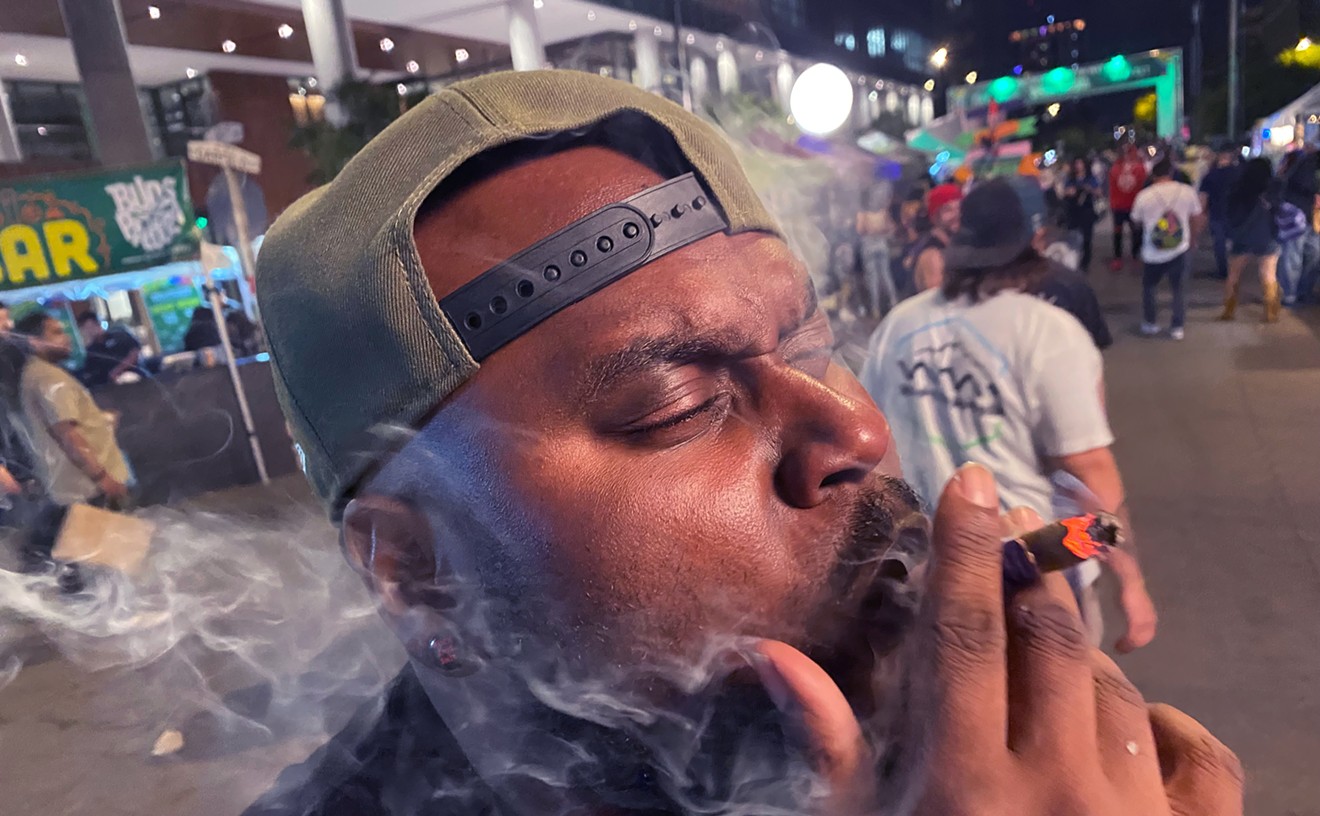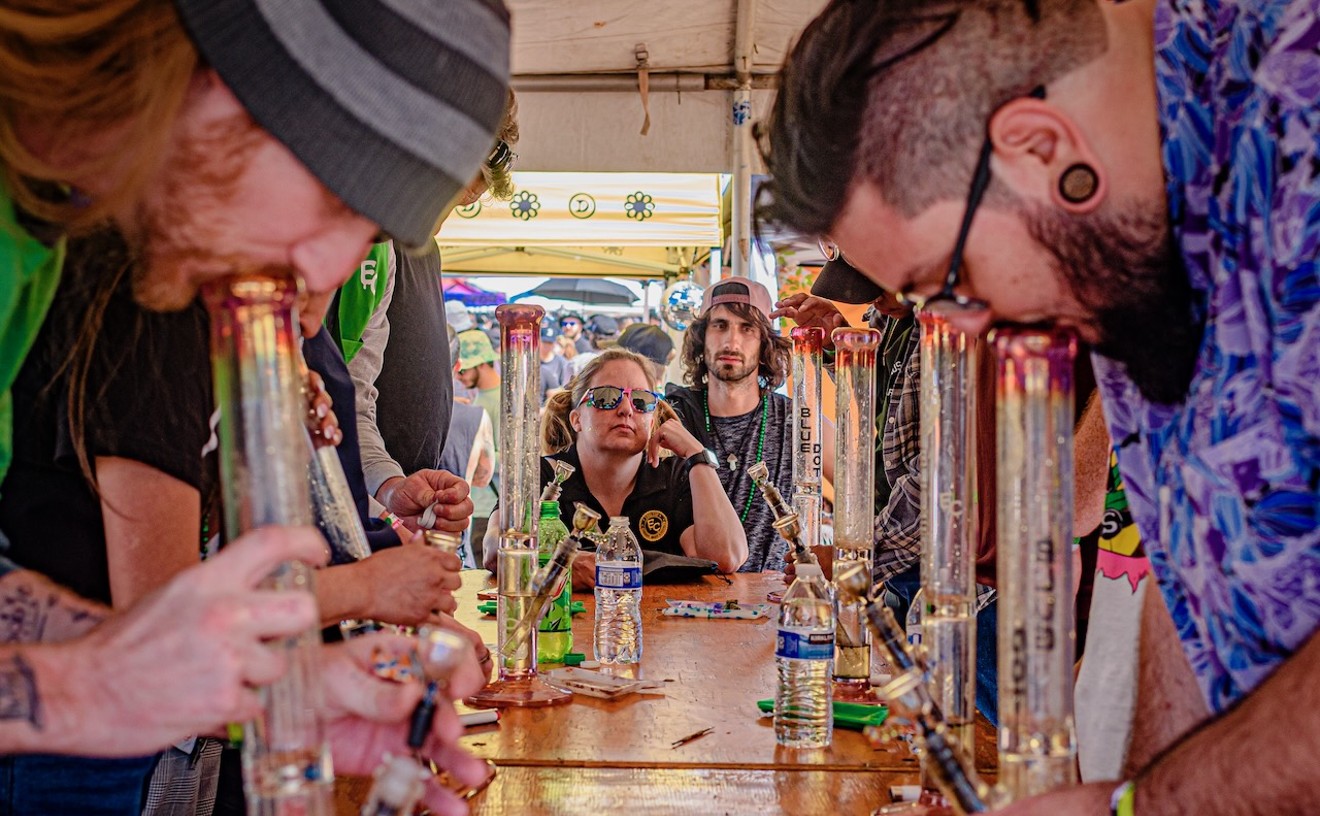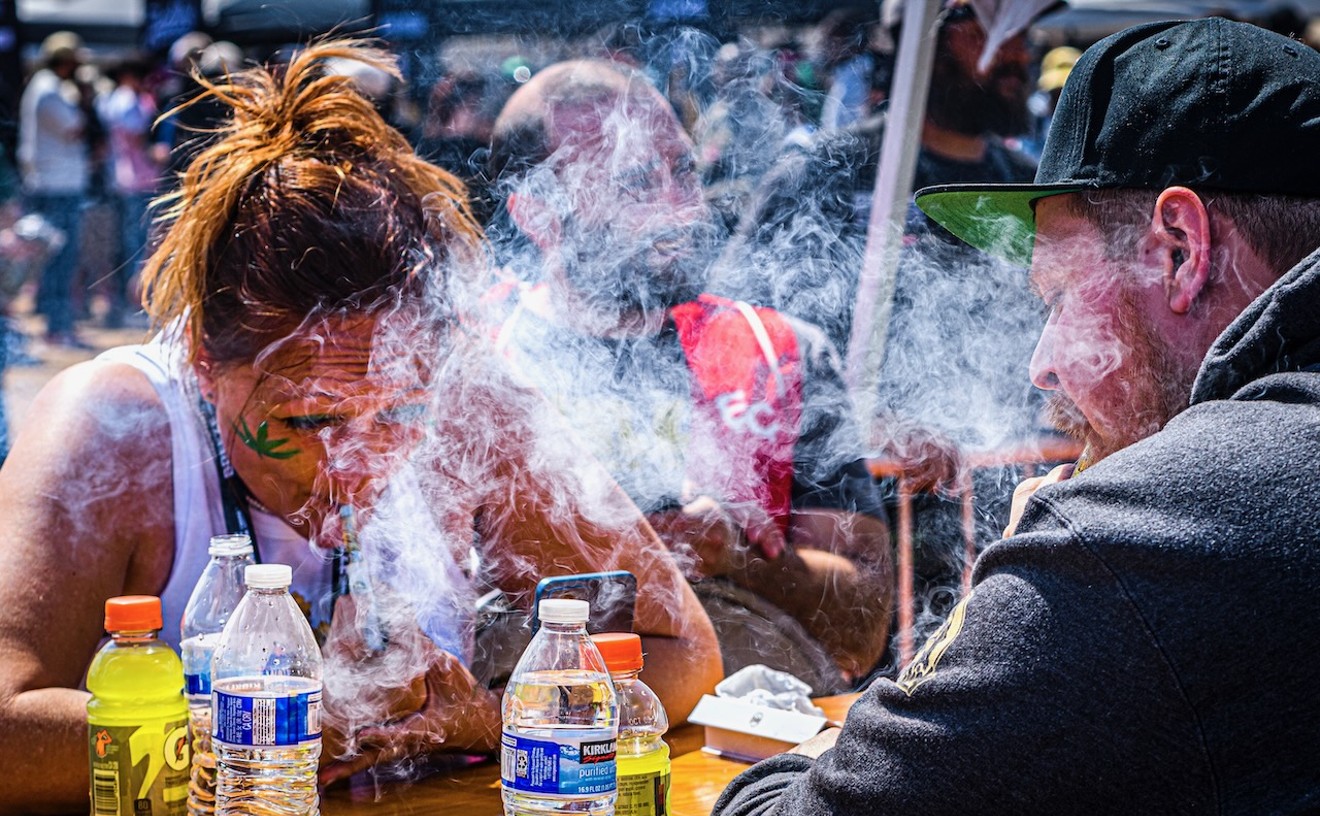Could Arizona Prosecutors Automatically Clear the Records of Previous Marijuana Offenders?
Some cannabis advocates think expungement initiated by the state would be the best way to go about clearing records.
By David Abbott
June 24, 2021

David Abbott
[
{
"name": "Air - MediumRectangle - Inline Content - Mobile Display Size",
"component": "18478561",
"insertPoint": "2",
"requiredCountToDisplay": "2"
},{
"name": "Editor Picks",
"component": "16759093",
"insertPoint": "4",
"requiredCountToDisplay": "1"
},{
"name": "Inline Links",
"component": "17980324",
"insertPoint": "8th",
"startingPoint": 8,
"requiredCountToDisplay": "7",
"maxInsertions": 25
},{
"name": "Air - MediumRectangle - Combo - Inline Content",
"component": "16759092",
"insertPoint": "8th",
"startingPoint": 8,
"requiredCountToDisplay": "7",
"maxInsertions": 25
},{
"name": "Inline Links",
"component": "17980324",
"insertPoint": "8th",
"startingPoint": 12,
"requiredCountToDisplay": "11",
"maxInsertions": 24
},{
"name": "Air - Leaderboard Tower - Combo - Inline Content",
"component": "16759094",
"insertPoint": "8th",
"startingPoint": 12,
"requiredCountToDisplay": "11",
"maxInsertions": 24
}
]
A handful of Arizona citizens hoping to get cannabis offenses stricken from their records made their way to Sol Flower in Sun City on Saturday, June 19, to sit down with local volunteer attorneys, learn about the expungement process, and determine if their cases qualified.
The clinic was the first in a series planned by Arizona NORML to spread the word about expungement as mandated by Prop 207, and get as many people as possible into the system by July 12, the date the petition process begins.
While the volunteers could not offer legal advice, they were able to guide attendees through the required paperwork in order to get them started. For those with more difficult cases, NORML is also offering referrals to attorneys familiar with the process.
As it stands, the only way for those affected to get their records expunged is to petition the state when the day comes or apply through their county attorney's website. But some cannabis advocates think expungement initiated by the state would be the best way to go about it.
“I'm hoping that when prosecutors' offices have to respond to these petitions, they'll recognize that it's far less work for them to bring expungements on their own than to respond to a multitude of petitions,” said Phoenix attorney Julie Gunnigle, Arizona NORML's director for politics and civic engagement. “They really should recognize that it is unfair to ask people who have been subjected to prosecution for this unjust war on drugs to have to step forward and do this on their own.”
Gunnigle's hope is that the system will be so overwhelmed on the first day that prosecutors will collect the data themselves and issue a blanket expungement for all qualified citizens.
Representative Melody Hernandez (D-26) was on hand at the clinic sporting a NORML t-shirt to show her support for the organization and its efforts to help people clear their records.
“I’m happy to be here today as Arizona begins righting one of the great historic injustices of the past century,” she said by way of introduction. “America was founded on the idea that everyone has a right to life, liberty, and the pursuit of happiness. But for far too long, it stripped good people of their liberty — and in many cases their life — for simply pursuing their happiness.”
Despite low turnout for NORML's initial clinic, participants felt they had been well-served by the help they received. Reed was first arrested around in 1999 on his way home from work. (We're identifying participants in the clinic by their first name only.) He recalls he may have been driving “a little bit too fast," and when an officer pulled him over, he discovered a roach — about “one-third of a joint” — in Reed's ashtray. He was arrested for possession on a class six felony.
“His reasoning for wanting to search the vehicle is because I had a mint in my mouth,” Reed said.
Reed was able to plead the charge down to a misdemeanor and received 100 hours of community service with random drug tests and probation. But in 2012, he was pulled over again on a random stop and found with a quarter-ounce of weed and rolling papers. Again, he was able to plead down to a misdemeanor, but Reed looks forward to getting the charges off his record.
Another attendee was a man by the name of Terrance who works in the cannabis industry. His story began as a college student one night in 2015 when he and some friends were preparing to go out to party in Old Town Scottsdale. They had a small amount of cannabis and while they sat in their car, police pulled up and started questioning the group.
“That's when I knew I should not say too much, because anything you say, they'll start digging more and more and more,” he said. “And they'll make you put yourself in a more of a hole than you would have.”
Officers eventually searched the vehicle after catching a glimpse of the remains of a pre-roll joint, giving them probable cause.
Instead of going out on the town, Terrence and his friends spent the night in a holding tank and he was charged with possession of paraphernalia. He pled down to a misdemeanor and eventually received his medical card. Terrence has been working in the cannabis industry for four years, but he still wants to clear his record.
“The clinic was helpful,” he said. “It's really cool that they're doing this because a lot of people don't have the funds to do it. Realistically, people don't even know where to start: We don't even know that there's a service like this or even if it's free or not.”
In addition to initiating petitions themselves, qualified individuals have the option to go to the attorney's websites in their county and fill out electronic forms, although Gunnigle is not recommending that course of action because of privacy issues and a vague timeline. She also thinks that a crush of early petitions will have something of a snowball effect, by showing those affected that there is nothing to fear from the process.
“We've really tried to be intentional about driving that early turnout, because that's going to drive further turnout and more people coming forward,” Gunnigle said. “The way it's structured right now is entirely dependent on somebody raising their hand and saying, 'Yep, that's me, I have a prior conviction,' and recognizing that for directly impacted people, there's still a ton of stigma around cannabis.”
High turnout can also help bridge barriers with those in Black, Indigenous, and other communities of color, where citizens are far more likely to be prosecuted for drug offenses than white people.
According to 2020 analysis by the American Civil Liberties Union, Black people are 3.64 times more likely than white people to be arrested for marijuana possession, “notwithstanding comparable usage rates.”
The report, titled “A Tale of Two Countries: Racially Targeted Arrests in the Era of Marijuana Reform, 2020” stated, “In every single state, Black people were more likely to be arrested for marijuana possession, and in some states, Black people were up to six, eight, or almost 10 times more likely to be arrested. In 31 states, racial disparities were actually larger in 2018 than they were in 2010.”
“I'm hoping that as they see a rush, more people feel confident that clinics like ours can provide them real legal relief,” Gunnigle said. “Because when it comes to access to justice, there's so many people who've fallen through the cracks and who've been just straight up lied to.”
What it comes down to for pro-cannabis activists though, is the injustice the war on drugs has wrought on the American public for so many generations.
“The effects of a marijuana arrest or conviction are often horrendous, even though the 'crime' of possession creates no victims,” Hernandez said in a prepared statement. “People who were lucky enough to avoid jail time still saw themselves stripped of the opportunity to prosper in our economy. They are denied quality jobs. They are denied housing. And they are even denied state licensing opportunities, which stop them from participating in our State’s burgeoning cannabis industry. This is flat-out wrong.”
Attorneys on hand had the opportunity to discuss strategies going forward and expect turnout to increase as word gets out about upcoming events.
“We were incredibly excited to host the expungement clinic in collaboration with Sol Flower Sun City and Copperstate Farms and want to thank them for their support,” said Mike Robinette, acting director Arizona NORML. “We hope to build on the success of our first clinic through more promotion and clarity as to the process. We look forward to hosting more expungement clinics throughout the summer in Phoenix, Tucson and beyond to assist individuals with the expungement process.”
NORML has scheduled the following clinics for the Phoenix area and one in Show Low:
*Nature’s Medicines, 2503 W. McDowell Road, Phoenix, from 10 a.m. To 4 p.m. on Saturday, July 10
*Nature’s Medicines, 2503 W. McDowell Road, Phoenix, from 10 a.m. To 4 p.m. on Sunday, July 11
*Nature’s Medicines, 2503 W. McDowell Road, Phoenix, from 10 a.m. To 4 p.m. on Saturday, July 17
*Nature’s Medicines, 2503 W. McDowell Road, Phoenix, from 10 a.m. To 4 p.m. on Sunday, July 18
*Green Hills Patient Center, 3191 S. White Mountain Road, Show Low, from 10 a.m. To 4 p.m. on Sunday, July 25.
Clinics generally run for 6 hours, but most visits take only 10 to 20 minutes.

KEEP NEW TIMES FREE...
Since we started New Times, it has been defined as the free, independent voice of Phoenix, and we'd like to keep it that way. Your membership allows us to continue offering readers access to our incisive coverage of local news, food, and culture with no paywalls.
You can support us by joining as a member for as little as $1.


Newsletter Sign Up
Enter your name, zip code, and email
I agree to the Terms of Service and
Privacy Policy
Sign up for our newsletters
Get the latest music, news, free stuff and more!
Trending
Use of this website constitutes acceptance of our
terms of use,
our cookies policy, and our
privacy policy
The Phoenix New Times may earn a portion of sales from products & services purchased through links on our site from our affiliate partners.
©2024
Phoenix New Times, LLC. All rights reserved.
Do Not Sell or Share My Information
Do Not Sell or Share My Information







